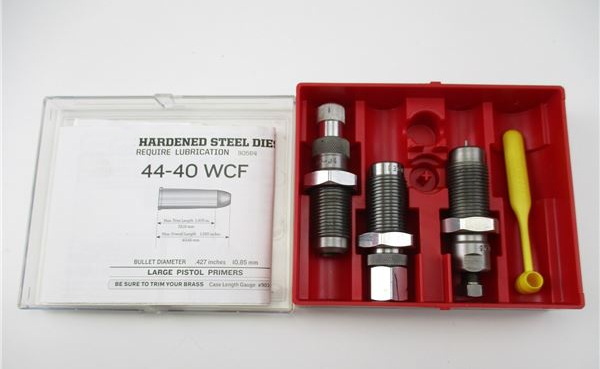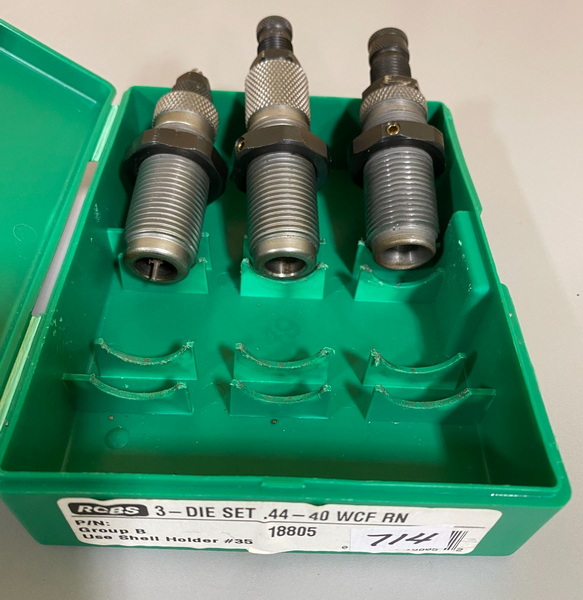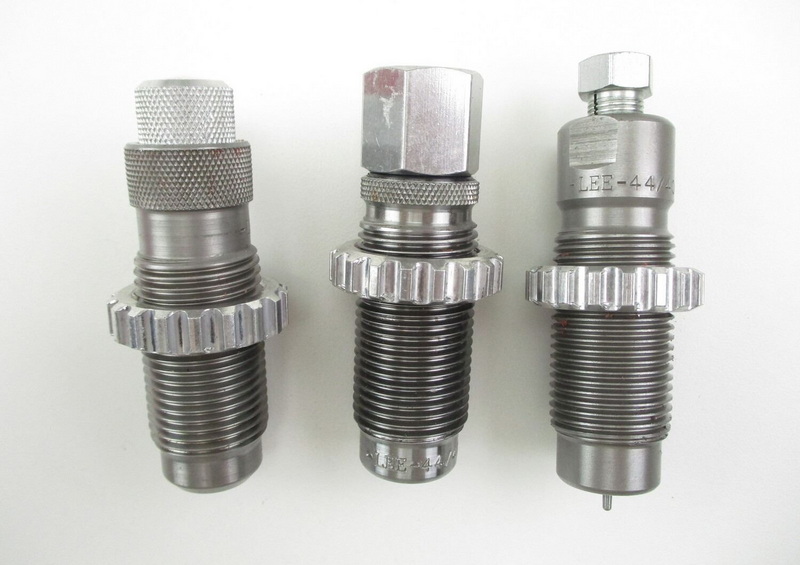Content Menu
● Introduction
● Understanding Reloading Dies
● Benefits of Using Carbide Reloading Dies
● Top Brands for 44-40 Reloading Dies
>> Lee Precision
>> RCBS
>> Hornady
>> ZHONGBO CEMENTED CARBIDE
>> Lyman
● Choosing the Right Die Set
● Tips for Successful Reloading with 44-40 Dies
● Conclusion
● Frequently Asked Questions
>> Q1. What is the difference between carbide and steel reloading dies?
>> Q2. How many reloads can I expect from carbide dies?
>> Q3. Do I need to lubricate cases when using carbide dies?
>> Q4. Can I use carbide dies for other calibers?
>> Q5. What should I do if my resized cases are too tight to chamber?
Introduction
Reloading ammunition is a rewarding and cost-effective hobby for firearm enthusiasts. Among the various cartridges available, the .44-40 Winchester Center Fire (WCF) holds a special place in the hearts of many shooters. Originally designed in the 1870s for the Winchester Model 1873 rifle, the .44-40 has a rich history and is still popular today, especially among cowboy action shooters and collectors. One of the key components in the reloading process is the use of reloading dies, and carbide reloading dies, in particular, offer several advantages. This article will explore the best carbide reloading dies for .44-40 WCF, their benefits, and tips for successful reloading.
Understanding Reloading Dies
Reloading dies are essential tools used in the ammunition reloading process. They are designed to shape and size the brass cases, seat bullets, and crimp the finished cartridges. The two primary types of reloading dies are steel and carbide. Steel dies are more common and less expensive, but carbide dies have gained popularity due to their durability and ease of use.
Carbide reloading dies are made from a harder material, which allows them to withstand the wear and tear of resizing brass cases. This hardness also means that carbide dies can often resize cases without the need for lubrication, making the reloading process cleaner and more efficient. For those reloading .44-40 WCF cartridges, investing in a quality set of carbide dies can significantly enhance the reloading experience.

Benefits of Using Carbide Reloading Dies
Using carbide reloading dies for .44-40 WCF offers several advantages:
- Durability and Longevity: Carbide dies are designed to last longer than their steel counterparts. They can handle thousands of reloads without showing signs of wear, making them a cost-effective choice in the long run.
- Reduced Need for Lubrication: One of the most significant benefits of carbide dies is that they often do not require case lubrication. This feature simplifies the reloading process, as it eliminates the need for messy lubricants and the extra step of cleaning cases after resizing.
- Enhanced Precision: Carbide dies provide a more consistent sizing process, which can lead to improved accuracy when shooting. The precise fit of the resized cases ensures better chambering in the firearm, reducing the chances of misfires or jams.
- Ease of Use: Many reloaders find carbide dies easier to work with, especially beginners. The straightforward operation and reduced need for lubrication make the reloading process more accessible.
Top Brands for 44-40 Reloading Dies
When it comes to choosing the best carbide reloading dies for .44-40 WCF, several reputable brands stand out. Each brand offers unique features and benefits, catering to different preferences and budgets.
Lee Precision
Lee Precision is known for its affordable and user-friendly reloading equipment. Their .44-40 carbide die set typically includes a sizing die, a bullet seating die, and a factory crimp die. Lee dies are popular among beginners due to their straightforward design and ease of use. The carbide sizing die allows for smooth resizing without lubrication, making it an excellent choice for those new to reloading.
RCBS
RCBS (Rock Chucker Bullet Swaging) is another well-respected brand in the reloading community. Their .44-40 carbide die set is known for its durability and precision. RCBS dies are made from high-quality materials and are designed to withstand heavy use. The company also offers excellent customer service and a lifetime warranty on their products, providing peace of mind for reloaders.
Hornady
Hornady is a well-known name in the ammunition industry, and their reloading dies are no exception. The Hornady .44-40 carbide die set features a unique design that allows for easy adjustment and precise bullet seating. Hornady dies are often praised for their innovative features, such as the floating bullet seating stem, which helps ensure consistent bullet depth.
ZHONGBO CEMENTED CARBIDE
ZHONGBO CEMENTED CARBIDE is a premium brand that offers high-quality reloading dies for serious enthusiasts. Their .44-40 carbide die set is designed for precision and durability, making it a favorite among competitive shooters. ZHONGBO CEMENTED CARBIDE dies often come with additional features, such as micrometer adjustments for precise bullet seating, allowing for fine-tuning of loads.
Lyman
Lyman is another reputable brand that offers a variety of reloading equipment. Their .44-40 carbide die set is known for its affordability and reliability. Lyman dies are designed to provide consistent results, making them a solid choice for both beginners and experienced reloaders.

Choosing the Right Die Set
Selecting the right die set for .44-40 WCF reloading involves considering several factors:
- Type of Reloading: Determine whether you will be reloading for casual shooting, competition, or hunting. This decision will influence the features you need in a die set.
- Firearm Compatibility: Ensure that the die set you choose is compatible with your specific firearm. Some firearms may have tighter chambers, requiring more precise dies.
- Budget: Consider your budget when selecting a die set. While premium brands offer advanced features, there are also affordable options that provide excellent performance.
- Experience Level: Beginners may prefer user-friendly dies, while experienced reloaders might seek more advanced features for precision loading.
Tips for Successful Reloading with 44-40 Dies
Reloading can be a complex process, but following these tips can help ensure success:
- Clean Your Brass: Before resizing, make sure your brass cases are clean. This step helps prevent damage to the dies and ensures consistent results.
- Use Proper Techniques: Follow the manufacturer's instructions for using the dies. Proper setup and operation are crucial for achieving the best results.
- Check Case Length: Measure the length of your brass cases before resizing. Trimming may be necessary if the cases are too long, as this can affect chambering and accuracy.
- Consistent Powder Charges: Use a reliable powder measure to ensure consistent powder charges for each reload. Variations in powder charges can lead to inconsistent performance.
- Test Loads: Start with a few test loads to determine the best combination of bullet, powder, and seating depth for your specific firearm. This experimentation can help you find the most accurate load.
Conclusion
In conclusion, using carbide reloading dies for .44-40 WCF can significantly enhance your reloading experience. The durability, ease of use, and precision offered by carbide dies make them an excellent investment for both beginners and experienced reloaders. Brands like Lee Precision, RCBS, Hornady, Redding, and Lyman provide a range of options to suit different needs and budgets. By following best practices and tips for successful reloading, you can enjoy the satisfaction of crafting your own ammunition while preserving the rich history of the .44-40 cartridge.

Frequently Asked Questions
Q1. What is the difference between carbide and steel reloading dies?
Carbide reloading dies are made from a harder material, allowing for longer-lasting performance and often eliminating the need for lubrication. Steel dies are more common and less expensive but may require lubrication and show wear over time.
Q2. How many reloads can I expect from carbide dies?
Carbide dies can last for thousands of reloads, often exceeding 10,000 rounds, depending on usage and maintenance. Their durability makes them a cost-effective choice for serious reloaders.
Q3. Do I need to lubricate cases when using carbide dies?
In most cases, carbide dies do not require lubrication for resizing. This feature simplifies the reloading process and reduces mess, making it easier for beginners.
Q4. Can I use carbide dies for other calibers?
Yes, carbide dies are available for a wide range of calibers. If you reload multiple calibers, consider investing in carbide dies for each to enjoy the benefits they offer.
Q5. What should I do if my resized cases are too tight to chamber?
If resized cases are too tight, check the die setup and ensure it is properly adjusted. Additionally, measure the case length and trim if necessary. Consistent resizing and proper adjustments will help achieve the right fit for your firearm.
















